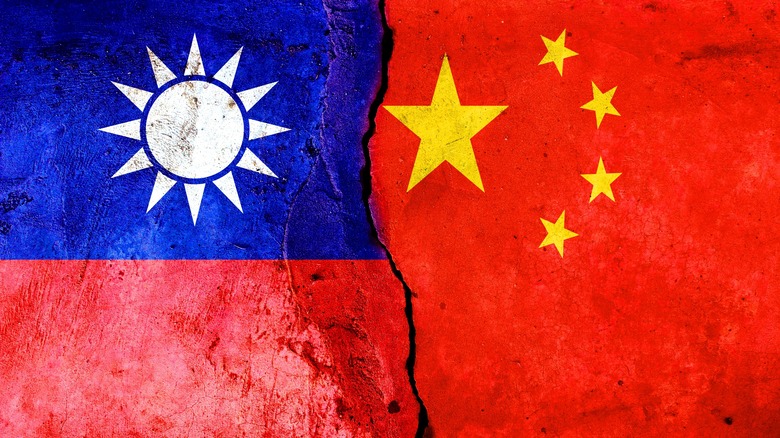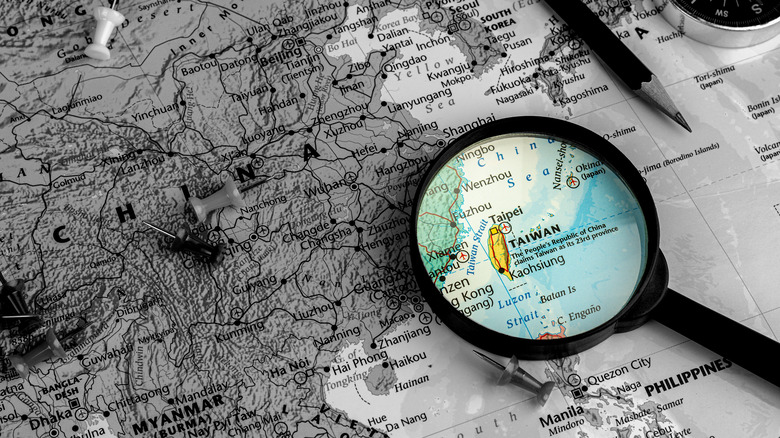Taiwan's History With China Explained
Until relatively recently Taiwan has generally been on the outskirts of Chinese politics. The island itself was originally home to indigenous Austronesian people, and was arguably one of several locations from which modern-day Polynesia was colonized (via LiveScience). While claimed as part of China for centuries, it was only in the 15th century that mainland colonists began arriving on the island in large numbers. From 1624 to 1683, the island was briefly claimed as a Dutch colony before remnants of the Ming Dynasty took it and formed the 'Kingdom of Tungning' (via OZY).
They did so in the hopes of preserving and eventually restoring the Ming government as the invading Qing Dynasty consolidated its control over the mainland. Their plans were crushed when Qing forces came for them as well in 1683, and the island remained under their control until 1895 (via Taipei Times). This was the year that the First Sino-Japanese War ended, with the surrender terms leaving Taiwan to become a Japanese colony until the end of World War II. Once it was released from Japanese control, however, the small island soon became a focal point of East Asian politics.
Both China and Taiwan claim to be the only legitimate Chinese government
After several brutal yet failed uprisings against them, the Qing Dynasty finally fell in 1911 during the Chinese Revolution. This did not bring peace, however, as the subsequent Chinese Civil War lasted from 1927 to 1949 (though the Japanese invasion officially represented a 15-year pause). The armies of communist Mao Zedong and nationalist Chiang Kai-shek fought for control over China until the latter was almost completely routed from the mainland. Chiang and the Kuomintang political party, who once claimed to inherit the revolution's legacy as the Republic of China, were restricted to Taiwan and a few scattered islands by 1950 (via Britannica). Yet even that has continued to prove too much for the mainland People's Republic of China (via The Guardian).
Both they and the Taiwan-based Republic of China (the ROC does not call itself Taiwan, as the island is considered just one part of their rightful territory) agree they are part of a single China. The question of which entity is China's legitimate government remains the main source of contention to this day (via BBC). This state of limbo has few solutions other than maintaining the status quo or, theoretically, war. Even moving in a new direction — the Republic of China redefining itself as an independent country of Taiwan and dropping its territorial claims — would not work either. For the PRC, unification is the only acceptable outcome, regardless of when or how it happens (via Reuters).

